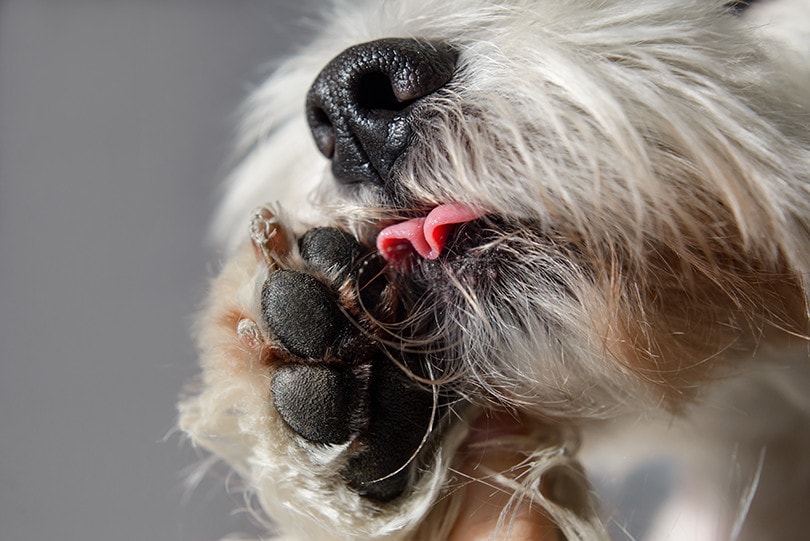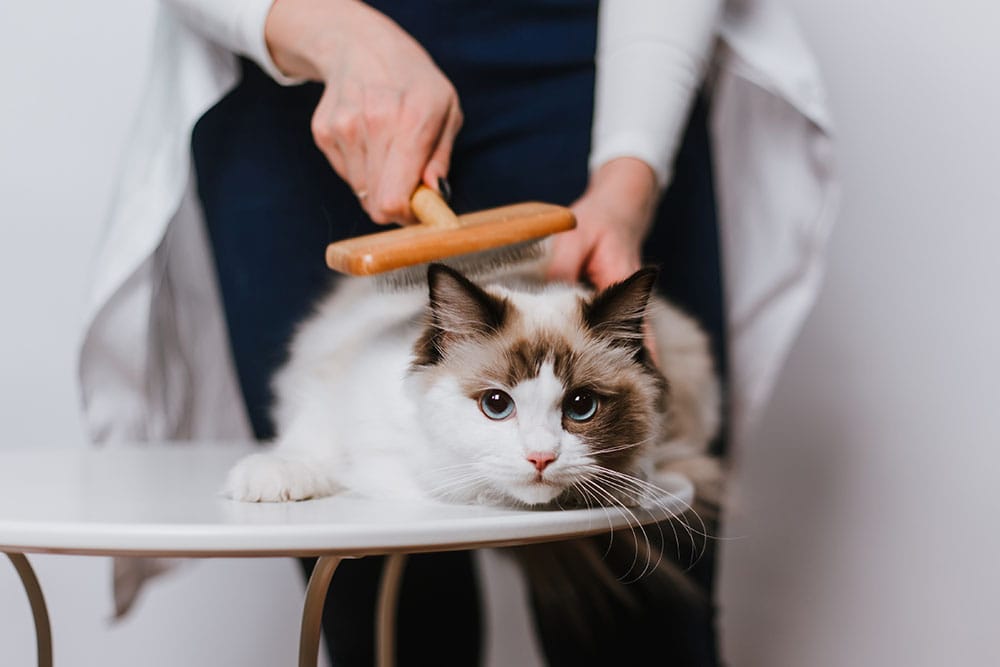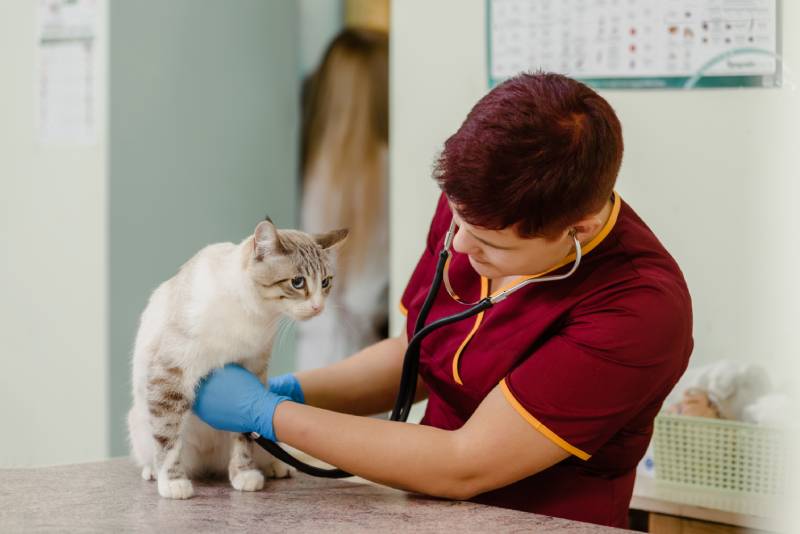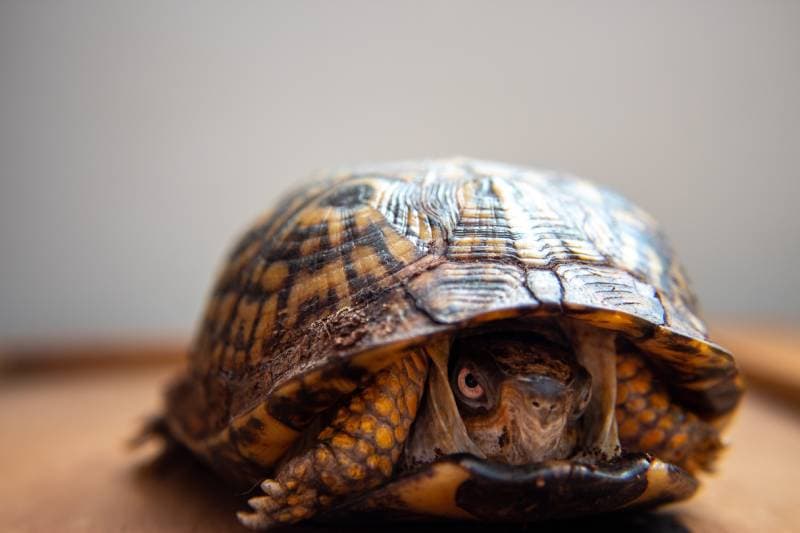VET APPROVED

The information is current and up-to-date in accordance with the latest veterinarian research.
Learn more »Click to Skip Ahead
Understanding why our dogs do the things they do isn’t always straightforward. When it comes to dogs licking their paws, it doesn’t take long for the constant smacking of their tongue and lips to drive us up the wall. It only becomes more frustrating when you can’t seem to figure out why they’re doing this in the first place.
Occasional paw licking can be normal for all dogs. Paw licking is a part of the grooming process, especially after coming in from outside. However, if your dog licks their paws frequently, or even if the fur on their paws has changed color, it is a sign that something is wrong.

The 6 Reasons Why Dogs Lick Their Paws
There are many different triggers for paw licking. Some are more severe, but often, it isn’t something to be worried about.
1. Injury
A dog that constantly licks their paws is sometimes in pain. Whether it be from a rash, a sliver, or an insect bite, many different things could irritate them. If the licking is limited to a single paw, the source is likely located on that paw.
Don’t ignore their pain, even if you don’t see anything. Most times, people can find what they’re looking for and remove it, but other times, the object is lodged too deeply. It’s best to speak with a vet to identify the type of injury and the treatment plan your dog needs.
2. Allergies
Chronic licking is most often triggered by some sort of allergy. The most common dog allergies are due to environmental allergens such as pollens or dust mites, allergy to flea saliva, and food allergy. Try cleaning your pup’s feet with a wet cloth every time they come inside. It could take some time and patience to figure out what the reaction is from, but your vet will guide you through the process. They can also give your dog medication to relieve the irritation.
3. Boredom
Modern society has created an environment that leaves dogs bored for hours on end. Many of us go to work for 8 hours a day and leave our dogs at home to fend for themselves. Historically, dogs had another purpose aside from being our companions. They were out hunting, scavenging, and guarding their territory. A bored dog could turn to licking and chewing their paws out of frustration. To keep your dog entertained, you could try one of the following:
- Have a dog sitter or dog walker check in on them during the day
- Give them a toy filled with a treat, like a Kong and peanut butter, to keep them occupied
- Schedule more playtime opportunities
- Provide them with interactive toys to keep them stimulated
- Give them at least 30-60 minutes of exercise every day
- Allow them to socialize with other people and pets
- Don’t keep them confined to one area
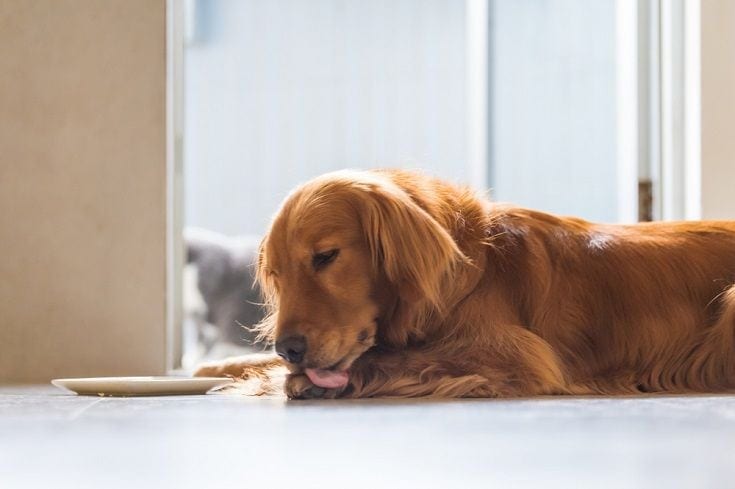
4. Anxiety
Dogs get anxious for different reasons, and one of the coping mechanisms that they may engage in is paw licking. If your dog is licking their paws before a certain activity or before bed, this is a sign that they have anxiety. Anxiety could also be caused by boredom, spending too much time alone, and illness.
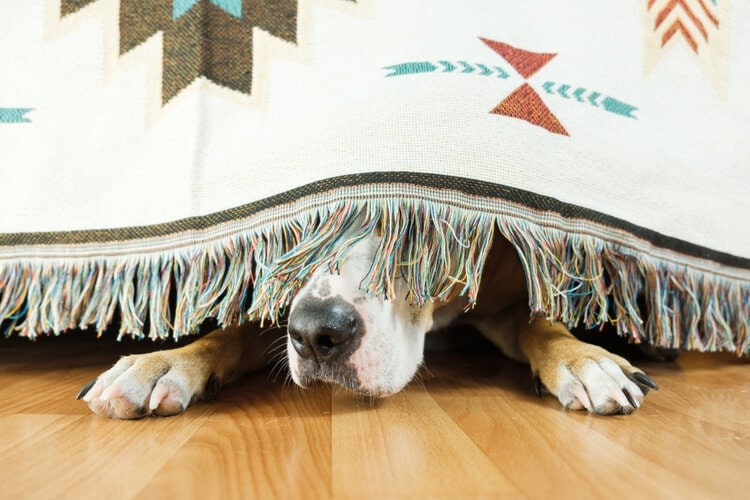
5. Parasites
Keeping your dog flea and tick-free is incredibly important for their health. Their conditions only get worse if they have an allergy to flea saliva. Fleas, and occasionally ticks, can cause paw itching, and they can be tough to find when they’re stuck in an area with all those dark crevices.
6. Cold Weather
Some dogs lick their paws more during one season than another. Some dog owners find that the licking happens more during the winter. Ice balls may form between your dog’s hairy toes, and the cold weather can pull hair or cause cracking and bleeding. Deicing salts that we use to melt ice and snow on our driveways are another issue. These salts contain chemicals that could potentially burn your dog’s feet. Avoid letting them wander these areas when they are off a leash.
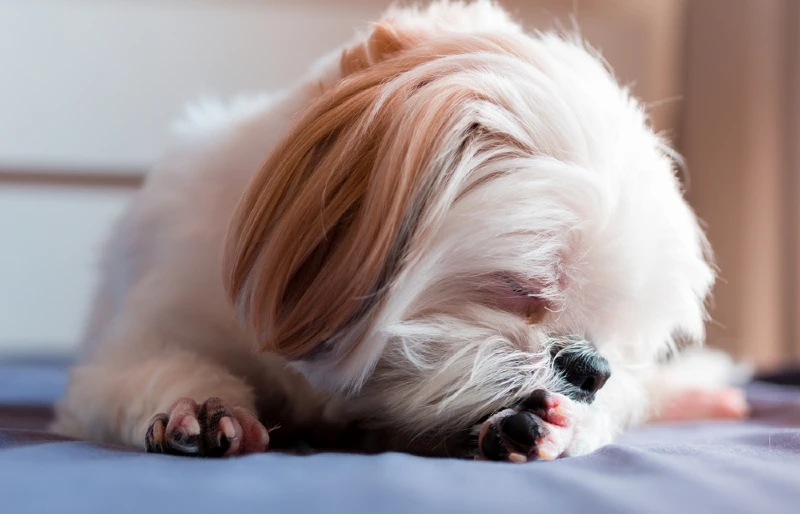

How to Stop Excessive Paw Licking (3 Ways)
While you identify the reason for the behavior, it’s important to stop them from doing it. We recommend taking your pet to the vet right away if you can’t determine a cause, but there are still ways to deter them until you’re able to get them in for an appointment.
1. Keep Their Paws Covered
Dog boots and socks aren’t only for fashion purposes. Many dog owners use these products to protect their fur babies’ paws, and they can also be used to prevent them from licking. Simply slip a sock or bootie over their paws and hope that the licking stops. Of course, some dogs might not be able to resist chewing it off if the irritation is unbearable.
2. Use a Cone Collar
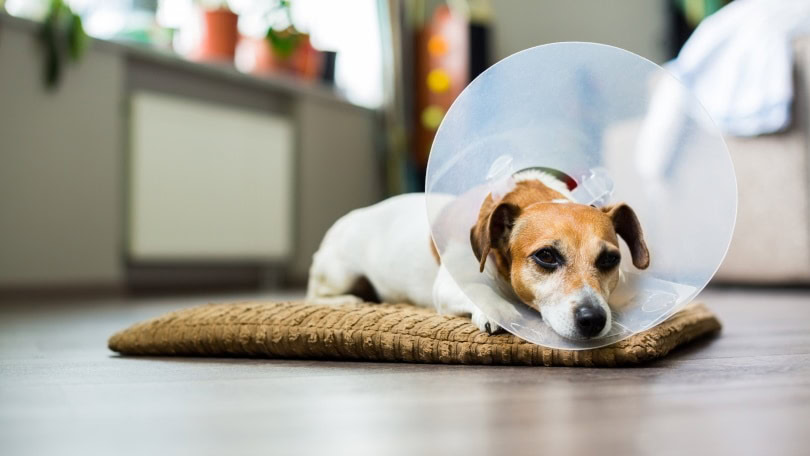
While this approach is a bit more extreme, cone collars are effective in preventing unwanted licking behaviors until you can see your vet and get a diagnosis. Cone collars make it more difficult for dogs to lick or pick at a certain spot on their body. Despite being a little uncomfortable, it is a good option until you can take them to the vet.
3. Distract Them
Keeping your dog engaged with toys, puzzle feeders, or interactive play can help temporarily redirect their attention from excessive paw licking until you can see the vet. While this method requires your supervision, it can be an effective short-term solution to minimize the behavior.

Final Thoughts
We know how annoying it can be to listen to your dog licking their paws for hours on end. You can try to ignore it, but the longer you wait, the more likely it is that the problem is going to get worse. If this behavior has been going on for a couple of days and you are unable to identify the cause yourself, make an appointment with the vet right away to figure out how to manage it.
Featured Image Credit: Julia Serdiuk, Shutterstock
